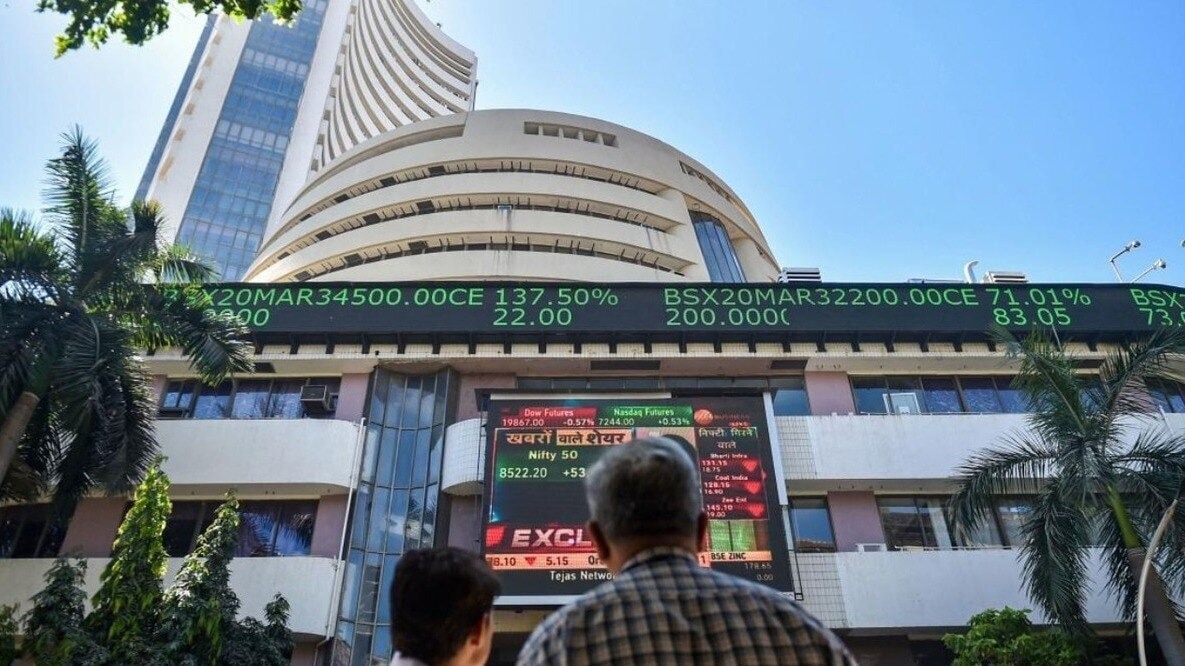
US FED CUTS RATES BY 50 BPS: HOW WILL IT AFFECT INDIAN STOCK MARKET?
The US Federal Reserve has cut its key interest rate by 50 basis points, bringing it down to 4.75-5%.
This is the first time the Fed has reduced rates since 2020, and it has been done to address slowing economic growth and easing inflation in the US.
The move has raised concerns about the stability of the US economy, and the impact is expected to be felt in markets across the world, including India.
While the markets opened on record highs with Nifty breaching the 25,500 mark for the first time, will the market rally continue?
Short-term volatility expected
Experts believe that in the short term, the Indian stock market might experience some ups and downs. This is because changes in US interest rates often lead to adjustments in global markets, and investors may react to the uncertainty.
However, India's strong economic position could still attract overseas investments, which may benefit the stock market in the long run.
Swapnil Aggarwal, Director of VSRK Capital, said, "In the short term, the Indian market may face some volatility, but in the medium to long term, India could still attract overseas investment due to its economic prospects. This would be good for the stock markets."
The rate cut could also have an effect on Indian exports, particularly in sectors like IT services that are heavily dependent on the US market. If the US economy slows down further, it could reduce demand for Indian goods and services. This might hurt India's export earnings.
Aggarwal also pointed out that a slowdown in the US economy would mean reduced demand for Indian exports, especially in IT services. This could weigh on India's overall export performance.
Indian Rupee and capital flows
On the positive side, a stronger Indian rupee and potential capital inflows could benefit India in the short term. A stronger rupee makes imports cheaper and can improve the country's trade balance. However, these benefits might not last if the US economy continues to struggle.
According to experts, the Reserve Bank of India (RBI) might also consider cutting interest rates to keep pace with the global trend. Some analysts suggest the RBI could lower rates by 25 to 50 basis points before 2025, though this will depend on how the US economy evolves and how global investors adjust their portfolios.
Caution in banking and financial sectors
The performance of banking and financial stocks will be key in determining how the Indian market reacts to the US Fed's decision. While rate cuts generally help boost markets, a cut of this size can also signal concerns about the economy, which may dampen investor confidence.
Palka Arora Chopra, Director of Master Capital Services Ltd, said, "A 50 basis points reduction signals major concerns about the economy. While rate cuts are usually good for markets, a large cut like this is seen as a sign of economic trouble, which can lower investor sentiment."
RBI's approach
The RBI might not follow the US Fed's lead immediately. While inflation in India is below the RBI's target rate of 4%, food prices remain a worry. Nevertheless, some experts believe that the improved global sentiment could help trigger a rally in Indian markets.
Divam Sharma, Founder and Fund Manager at Green Portfolio PMS, said, "The RBI is still vigilant and might not move in the same direction as the US. But the overall improved global sentiment could trigger a rally in the markets because emerging markets like India will become more attractive."
Investment strategies
Investors are being advised to be cautious in the near future. Sectors like Fast-Moving Consumer Goods (FMCG) and Pharmaceuticals are being recommended as safer investments during this period of uncertainty. Precious metals like gold and silver are also being suggested as good additions to portfolios while there is still uncertainty in the market.
Apurva Sheth, Head of Market Perspectives and Research at SAMCO Securities, said, "It seems like the markets will take time to digest this move. We recommend focusing on defensive sectors like FMCG and Pharma, and adding precious metals like gold and silver to portfolios until there is more clarity on the market direction."
Long-term outlook
In the longer term, the direction of the Indian stock market will depend largely on global factors, especially how the US economy fares. If the US economy experiences a "soft landing" and avoids a recession, Indian equities may see a gradual rise. However, if the global economic outlook worsens, Indian stocks, especially in the mid and small-cap segments, could see increased volatility.
Unmesh Kulkarni, Managing Director and Senior Advisor at Julius Baer India, summed it up by saying, "In the near-term, sentiment for Indian equities will depend on the global market, especially expectations of a soft or hard landing of the US economy."
"The Indian economy is on solid footing, but valuations are high, and this may limit gains unless there is a global rally. A soft landing would call for caution, staggered investments, and a preference for large caps. A hard landing could lead to some profit booking, especially in mid and small caps," he added.
2024-09-19T06:08:45Z dg43tfdfdgfd